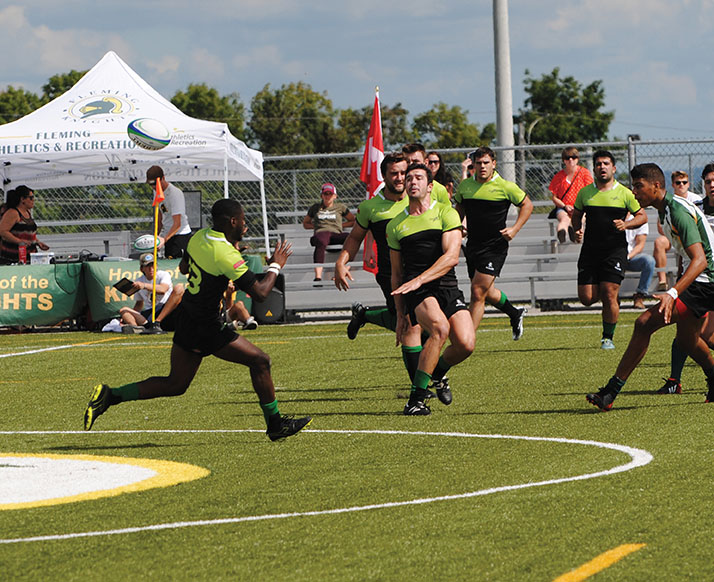By Fiona Scrivens
As the steel cutter tore into Ryan Gillis-Bateman’s knee, his brain blocked out the pain. He was working alone 60 feet above the ground on a welding job when the wind blew him over. It would eventually take him six months to recover, but his lifetime dream of being a football player was lost at that moment.
There are charts, statistics and pages of step by step recovery plans for all the different types of injuries that can accure in an athlete’s career.

However, there are no guidelines or specialists to help an athlete come to terms with not being able to follow their passion.
More athletes fail than succeed but no one ever talks about it.
It is easy as a child: one’s family pays the bills and there is little sacrifice involved. But then athletes start growing up and that passion is still there but the world isn’t as small anymore. There suddenly becomes a cost for playing a sport.
Gillis-Bateman, 24, was a football player who had to let the goal of going professional go. He now plays rugby on Algonquin College’s OCAA team.
Now, Gillis-Bateman dedicates five days out of the week for an hour and a half practices and then usually three to four hours on weekends for games. And that’s just for college rugby.
“It is a big chunk of my time,” he says. “There is a lot of sacrifices, you got to sacrifice family time, friends time, any social event you got to put aside. Just the way it plays out, you know?”
Before the knee injury, Gillis-Bateman thought about going pro in football. Instead of going straight to university, he decided to get a trade under his belt.
Gillis-Bateman went into welding and soon found himself going straight into the workforce, all while he was still playing football and working towards his goal.
Then he got injured.
“It seemed life happened all at once,” he says. “It shook my world a little bit and it brought me back to reality.”
That reality, he says, was he may never have been big enough to play at the highest level of football, injury or no injury.
With his world spinning, Gillis-Bateman was heartbroken.
Sport becomes such a huge part of an athlete’s life that when the dream they were trying to accomplish gets ripped out from under them, it can feel like someone else is in their reflection.
“There is always that idea you could go further and play for the highest level you can, but once you get more level-headed it’s a humbling experience,” Gillis-Bateman says.
For some athletes, the day they realize that not all dreams come true is not a single day. It takes them their whole childhood to find out they will never be on the podium and despite all the passion, they know deep down that they can never be the best.
“My parents told me the truth,” says Enrique Domingo, a men’s soccer player at Centennial College. “I’m going to have to give up soccer at some point. Parents don’t teach their kids that everyone can’t make it professional.”
Domingo came to Canada from Spain, always loving soccer.
He learned that because sport can become a part of who you are, it can be hard to separate yourself from it. However, sports teach him strength and he is glad his parents told him the truth so he didn’t have to experience heartbreak later in life.
Gillis-Bateman did have to change his plans. But after feeling sad, he realized there is another path for him. He says he tries to apply what he has learned in sports to his everyday life.
“I always try to match my physical level to my mental level at school. I try to match my practice to everything,” says Gillis-Bateman.

